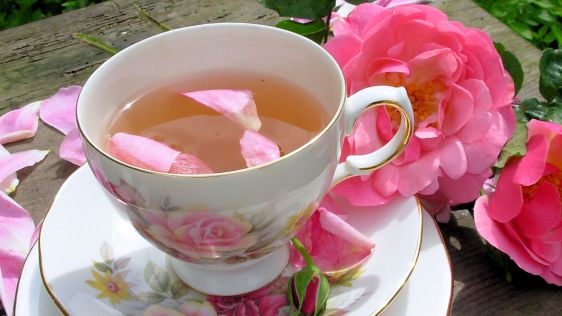For something entirely different, a YA fantasy for all ages.
Well imagined.
 |
| Buy Here |
~*~*~*~*~
 |
| Imperial Family & others. Little Alexi is sitting on the ground, center. |
WWI is a
popular topic these days with re: to novels, movies and miniseries. Even as a
child, I heard it referred to as The Great War but never realized the cruel
impact of it, the men being gassed, and the horrors of battles fought almost entirely in
trenches. This war involved almost every nation and killed (military &
civilian) more than 18 million.
No small potato.
 |
| Grigori Rasputin, the Mad Monk |
Russia took
part in this war with Czar Nicholas on the front, trying to direct his generals
and their portion of the battles. This left Grigory Efimovich Rasputin behind
to give spiritual advice to the Czarina, much of her family and the local nobles.
Vicious propaganda emerged Rasputin had bedded the Czarina and the two of them supposedly
ruled Russia in the Czar’s absence.
Enter Felix
Yusupov (also spelled Youssupov), a prince and more wealthy than the Imperial family.
Felix was the second son who, after the death of his brother in a duel,
inherited a vast fortune. They owned lands from Asia to Finland, reaped the
benefits of minerals and other resources. He was raised knowing this, and was
quite the wild fellow in his youth.
 |
| Felix Yusupov |
He enjoyed
wearing his mother’s clothes and jewelry, went to nightclubs dressed as a
woman. After an episode where his mother’s very expensive pearl necklace broke,
pearls shooting all over the darkened nightclub floor, Felix’s father put a
stop to all this nonsense. He set his son under close military guard and was taught
to act like a man.
 |
| Felix (in sailor suit) and his family |
Eventually,
due Felix’s father’s many absences from their numerous palaces and homes, this hard-line began to fade. Felix went to university at Oxford and resumed his frivolous
life. When he returned to Russia, he married the Czar’s only niece. Even as
Felix’s reputation was in tatters and the royal family considered him a
flagrant ne’er-do-well but since he was richer than Croesus, he was okay.
Felix was
introduced to Grigory Efimovich Rasputin,
the popular ‘mad monk’ and spiritualist. Felix’s social circles, especially the
women, were enamored with Rasputin. He had numerous affairs with women of all
stations. His smoky grey eyes could mesmerize one. His calm voice brought one peace.
The Czarina
considered him a gift from God who could heal the heir to the throne of his hemophilia.
Felix’s aunt, the Grand Duchess Olga, professed her belief in Rasputin, that
she observed him healing her dear nephew.
Russia’s
nobles learned to hate Rasputin. The imperial couple shunted their counsel
aside as Rasputin became more powerful. The Grand Duchess hounded Felix to love
Rasputin. They met and—even as Felix proudly accounted for his part in the monk’s
murder—something was missing in his account. Historians debate there may have
been more to Felix and Rasputin’s relationship than spiritual meetings.
Under the
guise of restoring the reputation and dignity of the imperial family, nobles planned
Rasputin’s assassination. They hoped the Czar would return to St Petersburg to
rule Russia as he was meant to do during a crucial time as this and let his
generals run the war.
December 29/30,
1916: (This is based on several accounts that don’t necessarily match, but
there you have it.) Led by Prince Yusupov who instigated the whole affair, Grand
Duke Dmitri Pavolovich, the Czar’s first cousin, Vladimir Purishkevitch, a Duma
deputy, and two others lured Rasputin to Felix’s opulent home with the promise
he would meet Felix’s wife.
Instead, he
was taken down a winding staircase to a large cellar where he was fed wine and
cake laced with cyanide. Either Rasputin was a strong man or the poison was
faulty for the man did not die. He passed out though. Rasputin lay on the floor, now awake, and told Yusupov he would tell something damaging about him to the Czarina. This
did not sit well with Felix.
 |
| The Courtyard where Rasputin finally breathed his last. |
Since the Yusupov
and the other men were committed, they shot him twice. One bullet hit him in
his midsection, the second in his back.
Rasputin
lived. He escaped to the mansion’s courtyard where he was cruelly beaten and
shot again in the head. Finally dead, the men dumped Rasputin in a hole in the
ice of a canal, knowing his body would be swept downstream.
The Czarina
was furious. Felix and Dimitri were exiled. Dimitri found his way to America. Felix
and his wife went to the Crimea then onward to Paris. They both survived the
Revolution.
As a
footnote: One article I read stated that without Rasputin and how much he was
hated, how he had controlled the Czarina and her husband, there would have been
no room for Vladimir Lenin.
But then
again, who knows.
~*~*~*~*~*~
Many thanks
to:
Wikicommons
&









































